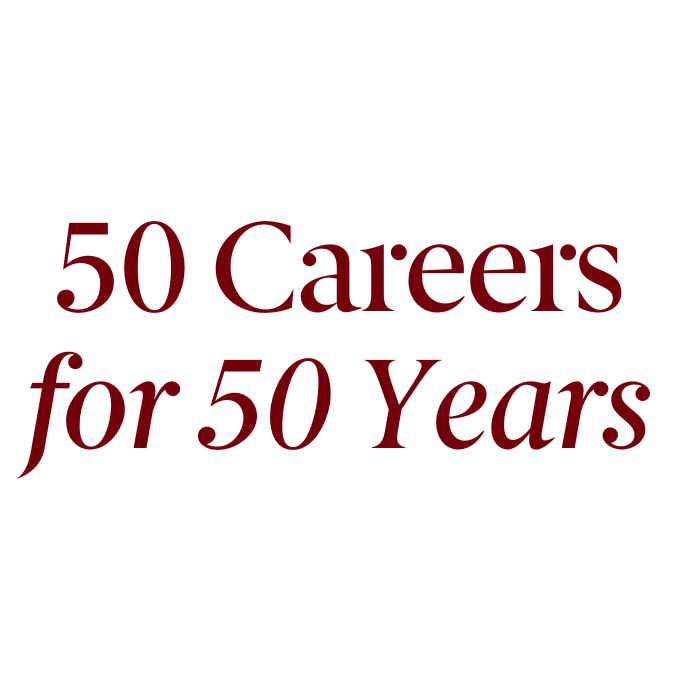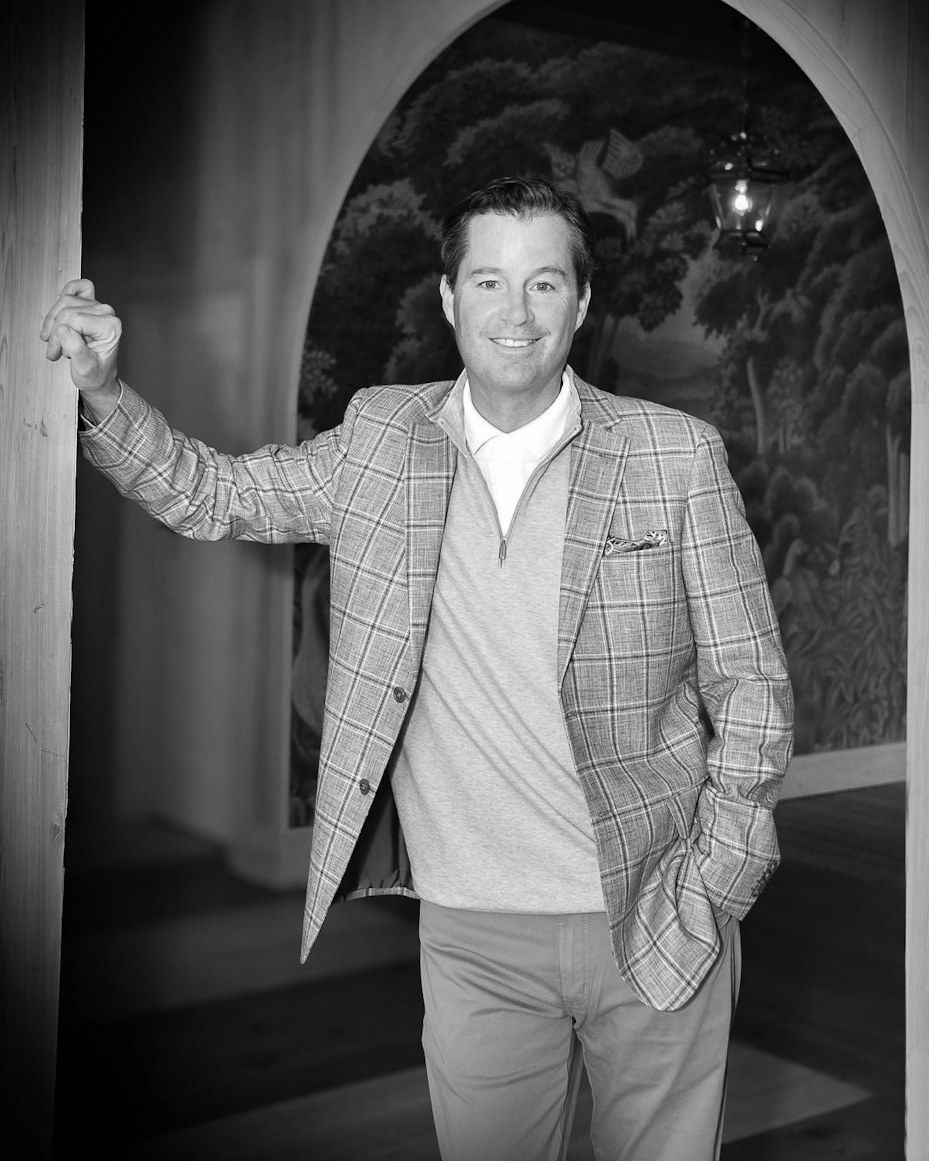
50 Careers for 50 Years
Fifty public health alumni reflect on their educational journeys and the impacts they’ve made across communities, countries, and the world.
March 12, 2025 | Erin Bluvas, bluvase@sc.edu
Gary Cooper has reached a stage in his life and career where he has wisdom to share, and he’s fought hard to earn it. A serial entrepreneur who has bought, sold and led multi-million-dollar health care organizations, the Master of Health Administration (MHA) alumnus (’96) says that his success almost cost him his life.
After hitting his lowest point eight years ago, when his doctor told him he had a month to live, Cooper has since started his second act. Now his life is focused on putting patients, employees and family first, and the growth of his relationships and businesses have thrived as a result.
Today, Cooper is the Chairman of Palmetto Infusion, a Pawleys-Island based, Southeast-wide (40+ clinics and growing) organization that allows patients to skip the hospital to receive their lifesaving treatments in outpatient settings. He’s also a devoted husband of more than 30 years and the proud father of four kids.
Paradoxically, he can trace the roots of both his challenges and his salvation back to his childhood and the early days of his career.
Cooper’s dad grew up on a sharecropping farm near the coast and then attended pharmacy school. An entrepreneur and a people-person, he didn’t want to work in a retail drug store and loved being around patients. He launched a health care company so he could travel around the state providing pharmaceutical services to residents at nursing homes.
Throughout the 70s and 80s, Cooper and his three siblings spent many Saturdays watching their father work. He remembers the facilities as sad places where little old ladies were tied down because care providers didn’t have the knowledge or tools to help calm them, and he vowed to do something with his life to provide another path for their care.
As a student at Wofford College in the Upstate, Cooper struggled with pre-med classes but excelled in business and began thinking about his next steps. Though watching his wife study for her law courses at USC helped him eliminate that vocation, he wasn’t entirely certain that the school of public health’s MHA program was the best fit either.
Cooper’s reservations melted away when his first semester began, and he was immersed in the familiar topic of health care. “This is everything I know,” he thought to himself, and he knew he was in the right place.
The Arnold School (not yet named for businessman and philanthropist Norman J. Arnold) was about 20 years into its existence at the time. However, the health planning/administration concentration had been a core area of the school since it’s start in 1975.

Finding himself surrounded by current health care professionals, Cooper felt the shift from undergraduate to graduate school. Learning from faculty/alumni like Suzan Boyd, who was a statewide leader in planned parenthood and teen pregnancy prevention and married to then-CEO of BlueCross BlueShield of South Carolina Edward Sellers, also prompted Cooper to step up his game. Boyd taught strategic planning, and her assignment to develop a business plan for a holistic health care company helped Cooper see the intersection of theory and the real world for the first time.
“I still remember that we planned for a natural food store, chiropractic, acupuncture, and other services,” he says. “I knew that we needed a billing code for a doctor of osteopathy, and that’s when I got excited about connecting all the dots. Once I got a taste of that, I was off to the races.”
The residency component was Cooper’s favorite part of the program, and he spent a semester with a home health care company. He also wrote his thesis on the subject.
As graduation approached, Cooper’s dad asked him what he wanted to do next. Remembering his childhood promise, he replied, “I want to keep people out of nursing homes.”
Together, they launched a home health care business, Winyah Home Health, serving Williamsburg and Georgetown counties. Over the years, Cooper and his siblings would buy, launch and sell various health care organizations under the Winyah name, including Winyah Hospice, Winyah Medical Equipment, and Winyah Pharmacy Solutions – all in response to the changing health care landscape and patient needs.
Three years into that first joint venture though, Cooper’s father passed away unexpectedly from a heart attack. Banks called in their loans, and Cooper scrambled to ensure they didn’t lose the business. He continued hustling for the next 15 years, destroying his body (multiple back/hip surgeries and a failing liver) and driving his relationships, and sometimes his businesses, to the brink.
“I lived like my hair was on fire, traveling 70,000 miles per week and running 60,” Cooper says. “I was trying to be everything to everybody, and no matter how much success I had, it was never enough.”

With the help of health professionals, his preacher and a leadership coach, and support from his family and business partners, Cooper turned his life and career around. Fighting all of his instincts, he began to speak less and listen more. As a result, he’s more successful – both personally and professionally – than ever.
“I believe the worst things that happen to us can become the best things that happen to us if we look into how we can turn them around,” Cooper says.
On the advice of his preacher, Cooper began treating his business like a ministry – focusing on listening and helping others, whether employees, partners or patients. “I started realizing that when I help other people experience success, then I do too,” he says.
Palmetto Infusion was the perfect candidate for applying this new approach. Cooper stepped back as CEO and spent his time mentoring others and elevating their voices. The results speak for themselves.
Launched more than 25 years ago – just after his graduation from the Arnold School, Palmetto Infusion was one of the businesses Cooper created with his dad and a direct response to patient needs. A new class of drugs – monoclonal antibodies – had just become available, offering revolutionary treatments for fighting cancer, infections, symptoms of autoimmune disorders, and other conditions.
However, the administration of these drugs – infusions – required oversight by a medical doctor. The traditionally available facilities for these types of treatments were hospitals and doctors’ offices, but these sites had little capacity to meet the growing demand.
Working with their business partners, Cooper and his dad created one of the first outpatient infusion centers in the country – and the billing codes to go with it, thanks to their close collaborations with BlueCross BlueShield. The result was that they could see more patients in more comfortable settings and at half the cost of the same treatments provided in hospitals.
Fast forward a decade or so, and Palmetto Infusion had been sold and repurchased by Cooper’s partners after encountering some bumps along the way. By the time he hit his “turnaround point” in 2017, the business was stable, though perhaps not thriving, at a respectable $80 million in services per year and 80 employees across a dozen clinics.
Since Cooper changed his perspective and began empowering others to lend their talents to leading the business, Palmetto Infusion has grown to $800 million in annual revenues, 700 employees and more than 40 locations in six states.
He says the journey has been incredible – not because of the numbers, but because of how they’ve been able to help people. Cooper loves seeing the impact of the services they provide. For example, some patients arrive for their first treatments in wheelchairs due to multiple sclerosis. Six months later, they are walking because of the treatment they’ve received.
“My favorite thing about health care is that we get emotional income,” Cooper says.
“I can’t imagine doing anything else with my life.”
Partnering with co-author Will Wilkinson, Cooper has chronicled his journey and the many lessons learned along the way in a book titled, The Success Paradox. They’ve also launched a non-profit organization, Open Mind Fitness, which provides mental health resources and support.
“Helping people without an expectation of anything in return and without telling anyone about your good deeds is a much sweeter thing compared to the alternative,” he says.
Cooper is also grateful for the milestones of his past that helped him get to where he is today.
“Having an MHA in my field has been one of the best things that has happened to me,” he says.
Cooper is not just referring to the knowledge and skills he gained in Boyd’s and others’ classes. He’s talking about the network that comes with being a USC alumnus, and specifically one that graduated from the Arnold School’s Master of Health Administration program.
“There are plenty of people who lead health care organizations, but very few of them have a specialized degree in the field,” Cooper says.
Very few of them can also say they earned that degree alongside industry icons like Chief Commercial Officer for Amazon One Medical John Singerling, whose career began with a one-year administrative fellowship at Prisma Health (then known as Palmetto Health) following his 1996 MHA graduation and included two decades of leadership (eight as president) with South Carolina’s largest health care system.
“The networking opportunities afforded by being an alumnus of USC are some the most long-lasting and impactful benefits I’ve experienced in my career,” Cooper says. “The opportunity and ability to navigate socially has been a large part of my success.”
He also credits the health care legacy he was born into. Building on his educational foundation, Cooper sees his progress as a continuation of his father’s work – an execution of the plan they created together.
“The only reason I’ve been able to build what I have in this field is because I’m standing on his shoulders and listening to his advice,” Cooper says. “Though I’ve learned to slow down more than he ever did, I try to follow his example by investing in people and relationships.”

Fifty public health alumni reflect on their educational journeys and the impacts they’ve made across communities, countries, and the world.

Join us as we celebrate the school’s 50th anniversary with guest speakers, symposia, feature stories, and anniversary events for students, alumni, faculty, staff and friends.